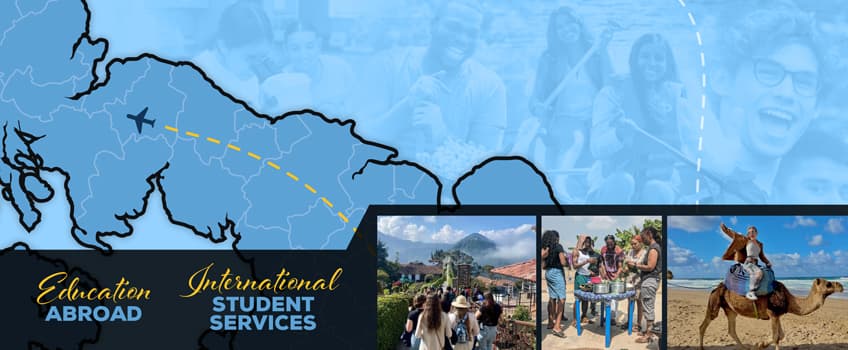Welcome to the Office of Global Engagement

The Office of Global Engagement provides opportunities for education abroad and away
within the U.S., supports the success of international students at Stockton, cultivates
international partnerships, helps faculty who teach and research abroad, and offers
on-campus internationally-focused programming.






